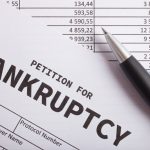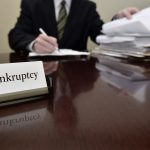You may have heard that after filing for bankruptcy, you will never get credit again. Bankruptcy does damage your credit score in the beginning and stay on your credit report for at least 10 years, but you are not limited to a cash-only existence for the foreseeable future. The truth is that many people go on to successfully qualify for credit cards, mortgages, and loans after discharge. By demonstrating financial Read More
Utah Bankruptcy: Understanding Adversary Proceeding
Although adversary proceedings are a potential part of any bankruptcy case, they are entirely separate processes. Simply put, an adversary proceeding is a lawsuit that arises when a complaint is filed during your bankruptcy case. Such an action can be initiated by the debtor, the trustee, and / or one of the creditors. Debtor Filings When a debtor files, it is usually because they believe that a creditor took Read More
Fighting Foreclosure: 5 Possible Approaches to Help Prevent the Loss of Your Home
When you first bought your home, the thought of losing it to foreclosure was likely the last thing on your mind. With the exception of those who intentionally commit mortgage fraud, homeowners facing the imminent loss of their home have been brought to that point by extenuating circumstances such as: Job loss Sudden illness of disability Divorce High debt obligations Fortunately, there are several Read More
A Brief Guide to Utah Bankruptcy Exemptions
When you file for bankruptcy in Utah, you naturally want to keep as many of your assets as the law permits. Utah has bankruptcy exemptions that protect certain property and/or let you keep assets up to a certain dollar amount. The exemption rules available to you will vary depending on which chapter you file. With Chapter 7, all non-exempt assets and property that exceeds an exemption amount can be taken and sold Read More
Taking Back Your Paycheck: Fighting Back Against Wage Garnishments
One method that creditors use to collect an unpaid debt from you is to garnish your wages. Depending on the circumstances and amount owed, you can lose up to 25% of your total paycheck. With some debts, such as child support, up to 60% can be taken. But no matter how much they have been allowed to seize, it’s money you can ill afford to lose. How the Garnishment Process Works Wage garnishment is used to satisfy Read More
6 Steps to Take to Fight Back Against Aggressive Bill Collectors
When illness strikes or jobs are lost, even the most financially responsible individuals can find themselves dealing with aggressive bill collectors. These collection agents use profane or obscene language, call you at work after you tell them to stop, and wake you up in the middle of the night with their calls. Is any of this legal? No. The Fair Debt Collection Practices Act (FDCPA) prohibits third-party debt Read More
4 Questions to Ask Yourself Before You File for Bankruptcy
If you’re experiencing serious financial difficulties, declaring bankruptcy may be the best option for you to wipe the slate clean and get a fresh start. To ensure that it is the right decision for you, there are four questions you should ask yourself before scheduling a meeting with a bankruptcy attorney. Will all my debts be cleared? While bankruptcy will give most debtors a new financial beginning, this Read More
What’s the Difference Between Chapter 7 and Chapter 13 Bankruptcy?
When experiencing financial difficulties that are insurmountable based on the level of debt and income, bankruptcy can be an effective solution. One of the first things that one must do is decide which type of bankruptcy is right for their particular situation. The two options for most people are Chapter 7 bankruptcy and Chapter 13 bankruptcy, so take some time to learn about the differences between each of Read More
Bankruptcy Briefing: An Introduction to the Means Test
Chapter 7 bankruptcy is usually more desirable than Chapter 13 bankruptcy to the financially distressed, as there are no payments involved and it allows them to get rid of more debt faster. But not everyone is eligible for Chapter 7. Those making more than a certain amount will have to pass a means test to declare Chapter 7 bankruptcy, and if they fail the test, Chapter 13 will be their only option. What’s Read More
Creditworthiness and the Impact of Bankruptcy
Sometimes due to unforeseen circumstances or lack of resources, a person might find themselves in an immense amount of debt. Depending on the situation, the best option may be for them to file for bankruptcy. It’s not an easy process, and most people have a lot of questions about the impact they can expect from their bankruptcy. One of the most common questions is how their bankruptcy will affect their ability to Read More

















